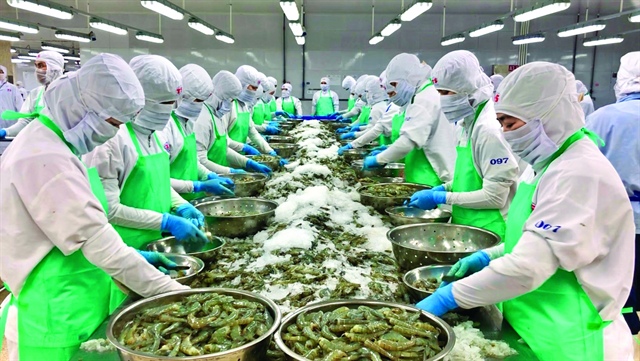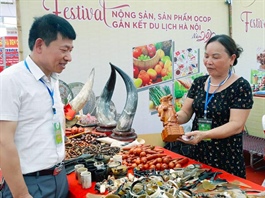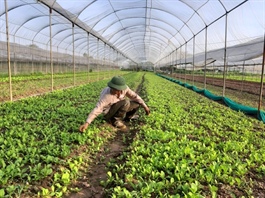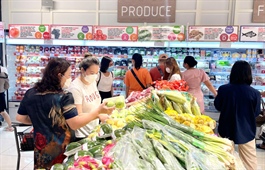Government adopts strategy to improve export-import growth quality
Government adopts strategy to improve export-import growth quality
Exports and imports were a bright spot in the Vietnamese economy in general and the industry and trade sector in particular in the 2011-2020 period.

Shrimp is among Vietnam’s key exports |
Impressive achievements
In the 2011-2020 period, Vietnam’s export-import activities yielded impressive achievements, significantly contributing to the Doi Moi (renewal) reforms and economic development. Total export-import turnover increased from US$203.6 billion in 2011 to US$545.3 billion in 2020.
In the reviewed period, the number of export commodities recording turnover of at least US$1 billion increased from 21 items in 2011 to 31 in 2020. The country’s trade surplus has been growing continuously since 2016.
Despite the impact of the COVID-19 pandemic, Vietnam’s total export-import turnover reached US$668.55 billion in 2021, including US$336.3 billion in exports and US$332.2 billion in imports, a year-on-year increase of 19 percent and 26.5 percent, respectively. As a result, the country recorded a trade surplus of more than US$4 billion in 2021.
Greater attention to quality, sustainability
The export-import strategy until 2030, issued on April 19, 2022 by the prime minister, focuses on the party’s socioeconomic development guidelines and policies and pays greater attention to export-import growth quality and sustainability.
Nguyen Cam Trang, deputy director of the Agency of Foreign Trade under the Ministry of Industry and Trade, said the strategy targets boosting industrial and agricultural production to create sustainable supplies for exports; developing export and import markets to ensure long-term sustainable growth; strengthening institutional reforms and state management to facilitate trade and avoid trade frauds; effectively using resources for export development, improving logistics infrastructure and reducing logistics costs; enhancing import management and control to meet demand for domestic production and ensure a healthy and reasonable trade balance; and heightening the role of associations and enterprises and promoting the formation of large-scale export value chains.
Trang added that localities must play an increasingly important role to promote their comparative advantages, effectively exploit opportunities and overcome challenges in fulfilling international economic integration commitments, contributing to the goal of sustainable export and import development.
| Nguyen Cam Trang, deputy director of the Agency of Foreign Trade under the Ministry of Industry and Trade, said impressive export-import results over the past decade have made important contributions to the country’s economic growth, job creation and people’s living standards. |























